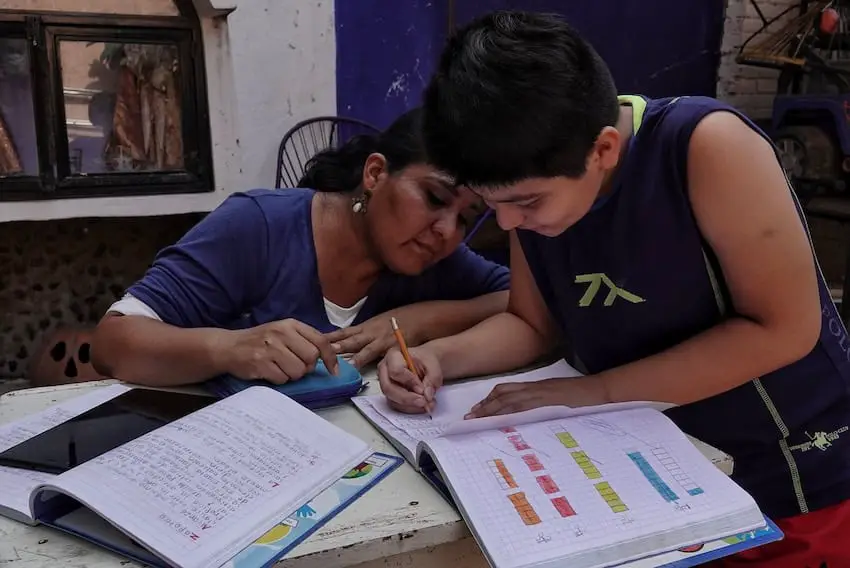Welcome back, my friends! It’s time once again to take a deep dive into Mexican cultural archetypes. On today’s agenda, a whopper: what (or who) is la mamá luchona?
The name means something like “warrior mother.” It comes from the verb “luchar,” to fight or struggle. It should be noted, however, that the phrase is often used both sarcastically and contemptuously.

What’s it used for?
Mostly to verbally roll one’s eyes at young mothers who have the nerve to be single and doing anything at all besides caring for their young. Having fun is especially frowned upon, especially if they’re poor on top of it. Take more points off if they’re having fun without their children!
Where’d it come from?
Like many memes that have suddenly taken off, it’s hard to trace the origin of the phrase. But I have two guesses. One is that it’s a phrase mothers proudly used for themselves until it was quickly co-opted.
The other is that it was born as a disrespectful phrase in the first place, which is what I’d personally put money on.
@_chesiito_ Mama luchona #colombia #parodia #uprivadas #minovia #testpareja #mamaluchona ♬ sonido original – _CHESIITO_
The phrase started getting very popular in the 20-teens — can we say that? — and it’s been part of the modern vernacular ever since.
Mexican motherhood in numbers
The idea of the mamá luchona is reserved especially for mothers who are not with their children’s father — the reason is unimportant. Who are these mothers?
According to INEGI, the national statistics agency, a third of them are widowed, single, separated or divorced. Approximately seven out of every 10 mothers work outside the home, and only 3% do not work outside the home or caring for their children.
Most women are either married or partnered when they give birth. The exception to this is when the mother is under 20 years old, in which case being single or separated is more common.

Luckily for some, not all the household’s income comes from mothers’ economic activities. Though child support is easily avoided — 67.5% of mothers face the evasion of responsibility on the part of their children’s fathers — it does sometimes account for a portion of a household’s income.
Mothers can’t win
So here’s the situation.
Mothers in Mexico are expected to be everything for their children. Indeed, being a good mother here traditionally means that you are at your child’s beck and call at all times.
If you happen to be single, however, chances are that you’re going to have to work. You might even want to try getting a better education! Doing either of these things, of course, requires childcare, and that’s not always easy to come by. Even under the best circumstances, there are still illnesses, teacher in-service days, vacations and short school days to contend with.
And though business owners complain that they can’t find enough workers, what’s on offer is hardly satisfactory and even less flexible. So one’s job requires 100% dedication, and one’s children require 100% dedication. If that’s not setting someone up for failure, I don’t know what is.
Alas, households need working people in order to meet their economic needs. Mothers lucky enough to have older female relatives around have a few more opportunities. They can work or study or both. If they also date, or have fun without their children, the conclusions of others are not kind.
“There goes another mamá luchona while her poor mother raises her kids,” is not an uncommon sentence.
Where are the dads?
If they’re honorable and responsible, men are meeting their material and emotional obligations as fathers. If they’re downright deadbeats, they’re still mostly living free of stigma. You see, the bar is quite low for fathers, and that’s true of most places in the world.

Lots of people fret about the reasons mothers might be single and struggling and often feel free to develop an opinion about it — usually a negative one. No one worries about why fathers might be single. Indeed, if he has to care for his children for any amount of time, the news is almost always met with sympathy rather than judgement.
They’re taking care of their kids all by themselves? But how do they do it?
Jezebel!
Dads can choose whether or not they want to be dads; moms cannot.
If a child is perceived as not well-taken care of, the question is never “Where is her father?” but “Where is her mother?” If a known mother is out by herself, the question is always, “Where’s your kid?” Fathers need not face this constant inquiry.
Especially notable: no one says to fathers, “If you didn’t want to be a father, why’d you have sex?” Why? Because the production of a child is not perceived as their problem. Taking responsibility for their actions is optional.
In the end, the very definition of privilege is the ability to avoid consequences. Mamás luchonas don’t get to do that.
So the next time you hear the phrase, remember: mothers trying to provide and care for their families deserve support and respect. Not sneers.
Sarah DeVries is a writer and translator based in Xalapa, Veracruz. She can be reached through her website, sarahedevries.substack.com.
